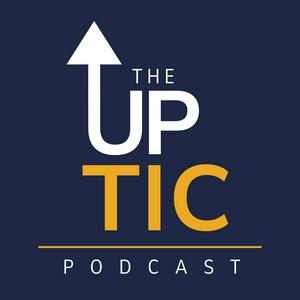Living With BFRBs: Support, Treatment & Their Connection to Tourette’s
In this episode, I had the honor of sitting down with Dr. Marla Deibler, a licensed clinical psychologist and expert in behavioral and cognitive psychology, to explore a topic that's not only often misunderstood but deeply important: Body-Focused Repetitive Behaviors (BFRBs). These include things like hair pulling, skin picking, and nail biting — behaviors that are frequently dismissed or minimized, but that can significantly impact a person’s emotional and physical well-being. Dr. Deibler brings warmth, clarity, and a wealth of clinical knowledge to help us better understand what BFRBs really are, how they function, and the crucial connection they share with Tourette syndrome, OCD, ADHD, and anxiety. This conversation touches on the science, the stigma, and the strategies for support. Marla Deibler, PsyD, ABPP is a Licensed Clinical Psychologist, Board-Certified in Behavioral and Cognitive Psychology, and CEO of The Center for Emotional Health of Greater Philadelphia. She is a nationally recognized expert in anxiety disorders and obsessive-compulsive and related disorders. Dr. Deibler currently serves as faculty member of Behavior Therapy Training Institute (BTTI) of the International OCD Foundation (IOCDF), President of the Board of Directors of OCD New Jersey (OCDNJ), the NJ affiliate of the International OCD Foundation, Consultant for the New Jersey Center for Tourette Syndrome and Associated Disorders, Visiting Clinical Supervisor at the Rutgers University Psychological Services Clinic, and as a member of the Executive Council for the Association for Contextual Behavioral Sciences (ACBS)OCD Special Interest Group.Episode Highlights:[0:40] Welcoming Dr. Marla Deibler and kicking things off with the basics of BFRBs.[1:53] Breaking down what qualifies as a BFRB — it’s more common than you think.[2:10] Exploring the link between BFRBs, Tourette syndrome, OCD, ADHD, and anxiety.[3:02] How genetics, behavior, and environment all play a role.[6:18] Tackling the stigma and shame that often surround BFRBs.[6:53] Why CBIT and Habit Reversal Therapy work — and how we adapt them.[9:03] A look into diagnostic assessments and whole-person treatment planning.[11:16] Addressing shame through compassion and community-based support.[21:41] Comparing how BFRBs manifest differently in children vs. adults.[25:15] Tips for parents — how to approach these behaviors with sensitivity.[27:09] Where we are with research, treatment, and what needs to improve.[30:45] Medication, brain science, and how BFRBs differ from tics.[35:39] Nonprofit resources and communities that offer specialized support.[37:01] Final words of encouragement — you’re not alone, and help is out there.Links & Resources:Connect with Marla:Website: https://thecenterforemotionalhealth.com/ Facebook: https://www.facebook.com/thecenterforemotionalhealth Instagram: https://www.instagram.com/ceh_philadelphia/ “X”: https://twitter.com/DoctorDeibler LinkedIn: https://www.linkedin.com/in/marla-deibler-psyd-abpp-a220851a/ BlueSky: https://bsky.app/profile/doctordeibler.bsky.social Marla Deibler’s Book: The BFRB RecoveryWorkbook: Effective Recovery from Hair Pulling, Skin PickingSend us a textSupport the show

